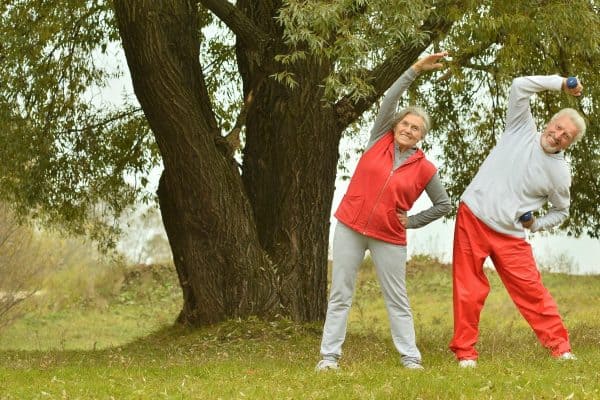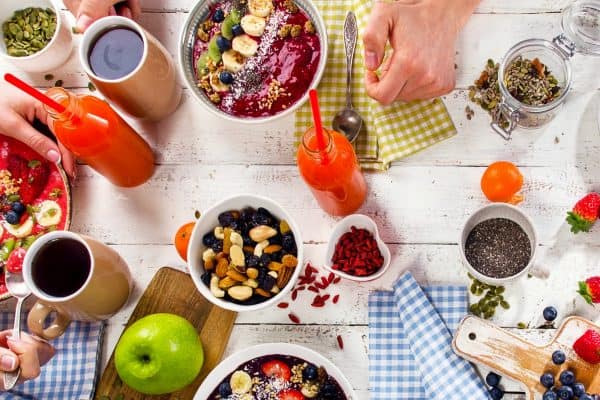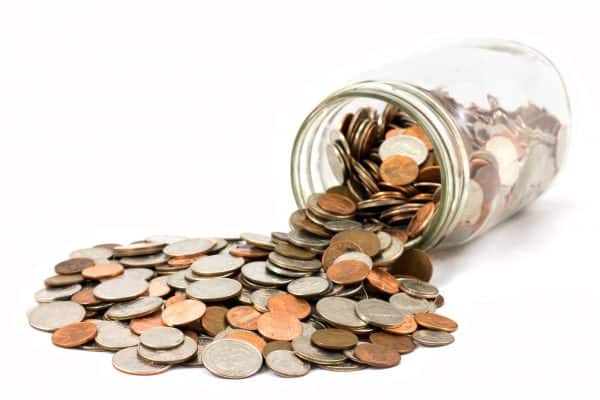Breakfast is the most important meal of the day, kick-starting your schedule with the nourishment you need. With busy routines, sometimes we’re so rushed that we only just about manage to eat, never mind sit down for a proper meal. With half of Brits admitting they skip breakfast regularly, on-the-go breakfast foods are becoming extremely popular. But are these apparently healthy breakfasts as nutritious as we think?
Read more: Tips for Healthy Eating on a Budget
Granola
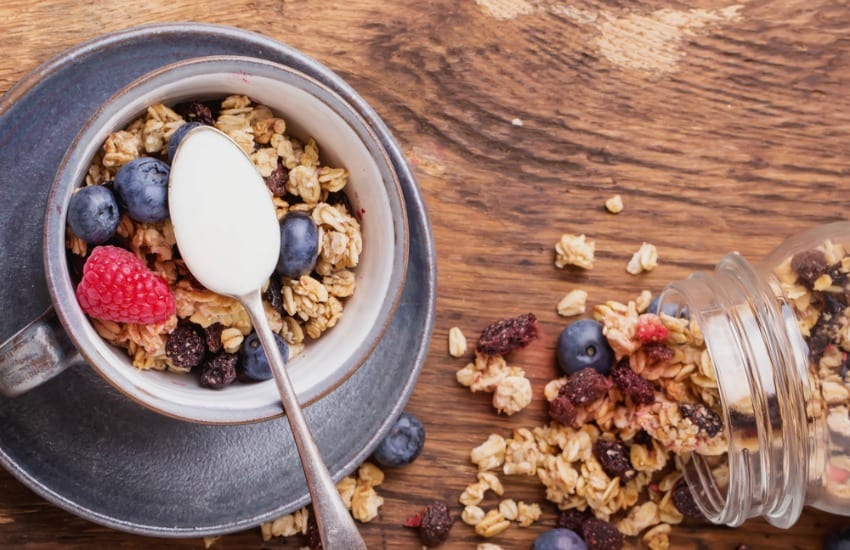
If you ask most people what a healthy breakfast is, they’ll likely reply with granola. The original recipe used bran granules and milk, ticking the boxes for high in fibre and low in sugar. But the granola market now often features products containing lots of hidden calories.
On paper, granola sounds like the ultimate healthy breakfast: whole grain oats, nuts, seeds and dried fruits. However, on top of the natural sugars and healthy fats found in the fruit, nuts and seeds, granola is also usually laced with refined sugar to enhance the flavour. There are, of course, many nutritional benefits to eating whole grains, nuts and seeds, but the sugar in granola means it should probably be considered a treat like a dessert, rather than a breakfast staple. Some popular brands can have as much a 17.2g of sugar per 100g – that’s more than half of your daily allowance and the same as an Exotic Solero ice lolly!
A healthy alternative
Porridge is a hearty, traditional breakfast that has been popular for generations. Oats have a slow release of energy keeping you full for longer and are proven to help lower cholesterol and high blood pressure. Porridge is so simple to make, needing only porridge oats and a liquid, be it milk, a dairy free alternative or even water. BBC Good Food recommends 350ml of liquid for every 50g of oats, with the best way to cook them being 4-5 minutes n a saucepan. Add honey or fruit if you want to sweeten it up and enjoy!
Cereal bars
Cereal bars are advertised as a perfect on-the-go breakfast, often claiming to be packed full of slow release energy and whole grains. Their names and packaging suggest a healthy snack, but the nutritional information tells a different story. They are usually high in sugar and fats, with many containing chocolate or sugary yoghurt for sweetness.
Even brands whose names suggest they will be among the healthier cereal bar options contain as much, if not more sugar than some of the brands more well known for adding sweeteners to their products. Not the health kick you’d expect!
Make your own
The best way to ensure a super healthy breakfast is by knowing exactly what goes into it. Start with a base of oats, nuts and seeds and bind together with a natural product such as almond butter or coconut oil. Add fruits and honey for natural sweeteners. Check out these super recipes from Good Housekeeping to give you some inspiration and make your own energy boosting bars.
Related: We Ask Pro Chefs Which Ingredients Can Afford To Be Cheap
Smoothies
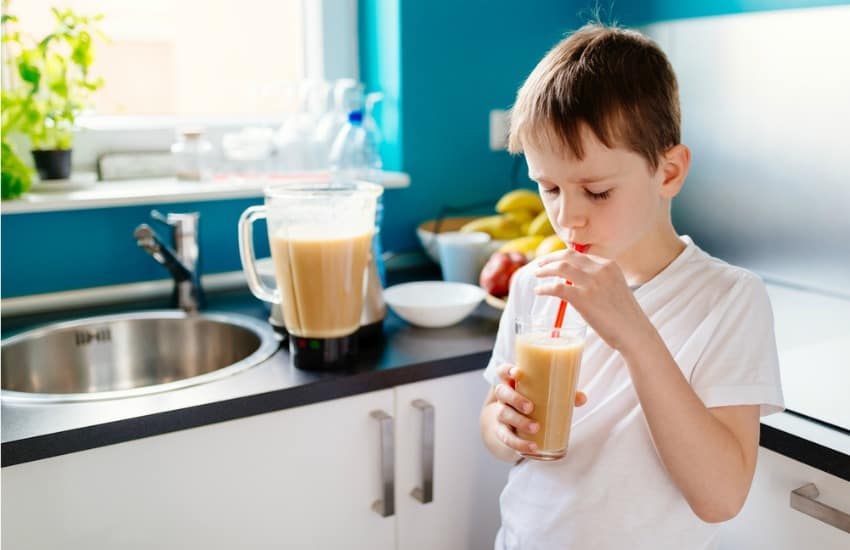
Smoothies are often drunk as an accompaniment to breakfast, on top of a cereal bar or other breakfast dish. Because they are packed with fruit, most people see them as a brilliant way to kick start the day. However, Real Simple says ‘a smoothie’s main ingredient is fruit juice, which adds calories without providing any of the good-for-you fibre you get from the fruit itself.’
Although the sugars from fruit juices are natural and therefore less harmful to the body than refined sugar that is added to food, they can still do quite a lot of damage to teeth. The NHS states:
‘The sugars found naturally in fruit and vegetables are less likely to cause tooth decay, because they are contained within the structure. But when fruit and vegetables are juiced or blended into a smoothie, the sugars are released. Once released, these sugars can damage teeth.’
So it’s important to brush your teeth after smoothies and drink plenty of water.
Healthy smoothies
Despite their sugar percentage, smoothies and fresh fruit juices are still much healthier than artificially flavoured juices and fizzy drinks. You can make your breakfast smoothie even healthier by adding vegetables as well as fruits. Introducing kale or baby spinach in small amounts will up the fibre as well as providing tonnes of vitamins, calcium, iron, protein and other energy boosting nutrients. Carrots are sweet in flavour and provide an abundance of carotenes and Vitamin A which have antioxidant properties and maintain growth and development.
Healthy breakfasts with biscuits?
Breakfast biscuits are touted as being a slow release source of energy, are sometimes low calorie, and contain whole grains. They often aren’t cheap, but when they appear to be healthy and nutritious, you may think they’re worth the money. The reality, though, can be quite different!
While these biscuits may have added vitamins and multi-grains, they also usually contain a lot of sugar. A survey of 39 biscuits highlighted in The Telegraph showed some surprising results. Of the biscuits tested, 40% showed a red traffic light warning on their packaging, highlighting them as high in sugar. Almost half contained the equivalent of 3 teaspoons of sugar. The NHS recommends no more than 30g or roughly six teaspoons of sugar per day for adults, so two of these biscuits is enough to satisfy the suggested intake limit.
Surprised by this information? We were, too! We hope it’s helped you to discover something you may not have known before and given you a future of healthy breakfasts.




